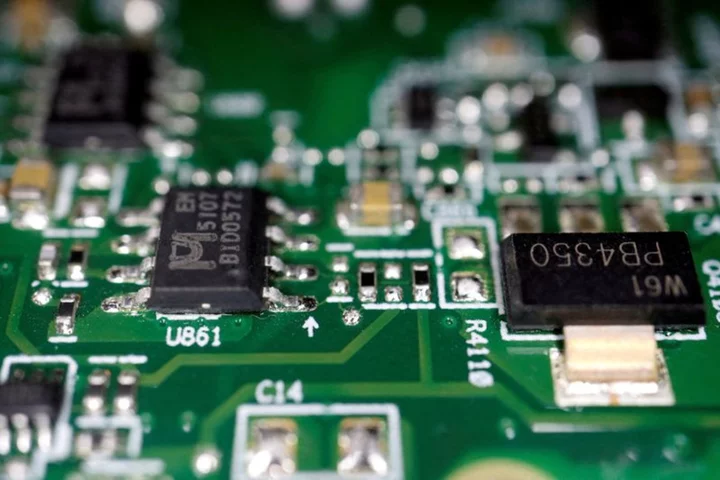
Japan's efforts to foster chip sector are 'impressive' - research org head
By Sam Nussey TOKYO Japan's efforts to regain its position as a leading manufacturer of chips are "impressive",
2023-11-09 12:52
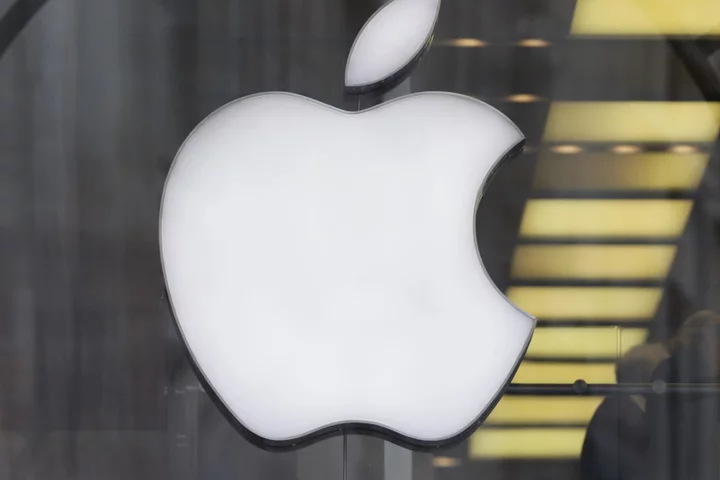
Ireland and Apple await major development in long-running EU tax dispute
EU lawmakers are awaiting an announcement which is seen as major step in the drawn-out dispute over tax arrangements between technology giant Apple and Ireland. The advocate general at the European Court of Justice is to issue an opinion on Friday morning about whether Apple will be forced to pay more than 13 billion euro in back taxes to Ireland. While the opinion of the advocate general is non-binding, it is usually followed by the court and therefore could have significant implications for corporation tax bills. Ireland had fought the European Commission over the matter due to concerns over an intrusion on Irish sovereignty and potential impacts to investment in the country. There was no sweetheart deal Finance Minister Michael McGrath In 2016, following an EU investigation which launched in 2014, the commission concluded that Ireland gave undue tax benefits of 13.1 billion euro to Apple, which is illegal under EU state aid rules. The commission said that tax rulings issued by Ireland to Apple in 1991 and 1997 substantially and artificially lowered the tax paid by the iPhone manufacturer in the country since 1991, in a way which did not correspond to economic reality. As a result, competition commissioner Margrethe Vestager said Ireland had granted illegal tax benefits which enabled it to pay substantially less tax than other business over many years. The investigation found that Apple had paid an effective corporate tax rate of 1% on its European profits in 2003, down to 0.005% in 2014 – 50 euro for every one million euro of profit. The process involved recording almost all sales profits of two Irish incorporated companies, which the commission said only existed on paper. The companies, fully owned by Apple, held the rights to use the firm’s intellectual property to manufacture and sell its products outside North and South America. The commission said this situation allowed Apple to avoid taxation on almost all profits generated by sales of its products in the entire EU single market. It said this was due to Apple’s decision to record all sales in Ireland rather than in the countries where the products were sold. The findings were disputed by the Irish State – which said all tax owed had been collected – and Apple, which had come under scrutiny in the US for its tax practices years earlier. At the time, Apple’s chief executive, Tim Cook, branded the EU findings as “political crap”, maddening and untrue. The Irish Government, which was also used to defending a comparatively low 12.5% corporation tax rate, said Europe had overstepped the mark in attempting to dictate tax laws and enforce retrospective taxes decades later. Ireland and Apple fought the commission on the matter and in July 2020, the General Court of the European Union annulled the decision. However, the commission subsequently appealed the decision to the European Court of Justice with Ms Vestager saying the lower court’s ruling contained “errors of law”. The European Court of Justice’s advocate general is to give a legal opinion on the dispute ahead of the court’s final decision. That decision is expected next year and will have significant implications for how member states grant tax breaks to major firms. Apple has argued it has been paying tax on the profits in question in the US, while Ireland has seen it necessary to defend its reputation on taxation issues to protect foreign direct investment. Last weekend, Finance Minister Michael McGrath said the advocate general’s opinion will be “significant” but added it is not the final step in the process. Mr McGrath said: “We are confident in our position in respect of the Apple case. We take encouragement from the findings they have made so far, but it is a significant day.” He added: “There was no sweetheart deal. This was the application of Ireland’s statutory corporation tax code.” In the interim, the 13.1 billion euro has been held in an escrow fund pending the outcome of the case. The money, with interest, is due to be entered into the Irish exchequer if the commission wins the case. However, other member states may make claims that they are owed some of the money. If the commission loses the appeal, the large sum will be returned to Apple.
2023-11-09 10:45
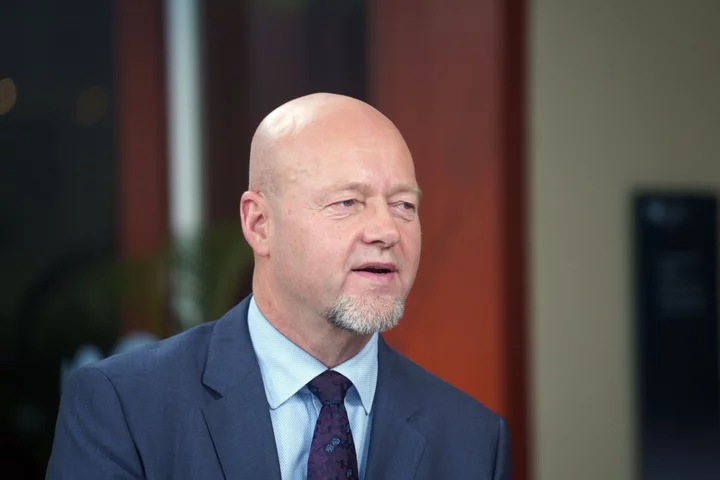
NEF Latest: Ken Griffin Warns on US Spending as Clinton to Speak
Citadel founder Ken Griffin called for the US to rein in excess spending and warned the country could
2023-11-09 10:20

Apple co-founder Wozniak suffers possible stroke in Mexico -local media
MEXICO CITY (Reuters) -Apple co-founder Steve Wozniak was hospitalized in Mexico City on Wednesday due to a possible stroke, Mexican
2023-11-09 09:24

Insurers Are Still Backing Oil and Gas Industry Despite Rising Climate Threat
Insurers are continuing to provide cover for increased oil and gas production even as they face large losses
2023-11-09 08:01
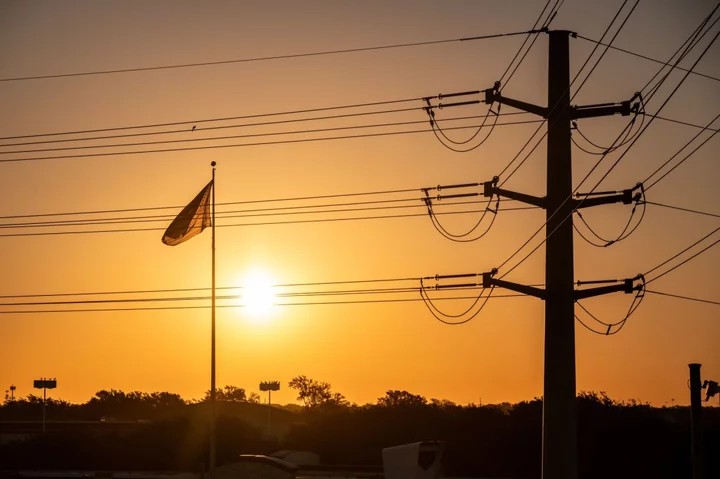
Texas Grid Regulator to Resign, Appointed After Deadly Disaster
Texas Governor Greg Abbott’s first appointee to help the state’s utility regulator after a deadly 2021 blackout plans
2023-11-09 05:17
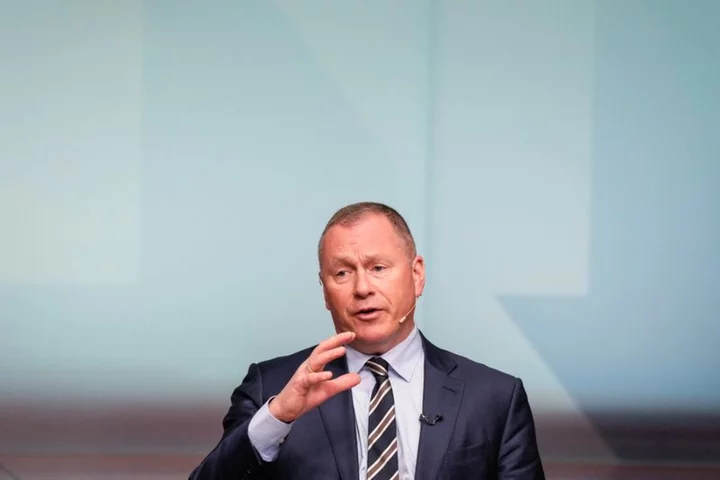
REUTERS NEXT - Norway wealth fund CEO says it is using AI to deploy capital
(Adds missing word 'near' in quote in 2nd paragraph) By Lananh Nguyen and Gwladys Fouche NEW YORK Norway's
2023-11-09 03:56
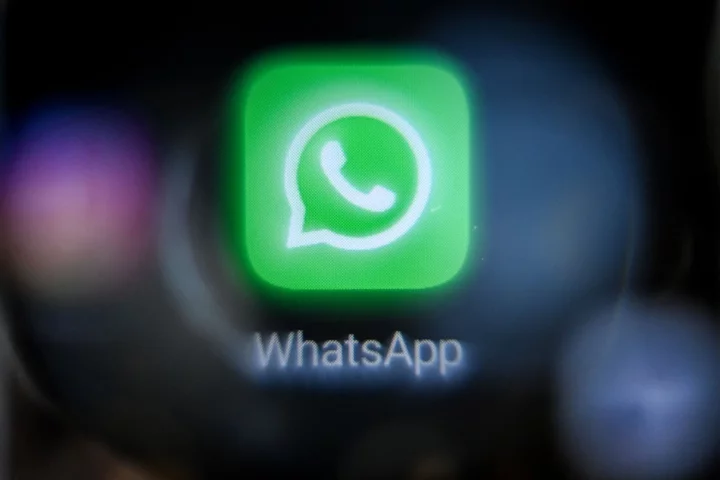
WhatsApp update stops hackers being able to find your phone by calling it
A new WhatsApp feature could stop people from being found through phone calls, the company has said. The tool, named “Protect IP Address in Calls”, is aimed at letting people ensure that they do not give away unwanted information to the people who call them up. At the moment, WhatsApp calls are made in one of two ways: peer-to-peer or through WhatsApp’s servers. The new setting allows users to choose between them to ensure that they are able to keep information private. Peer-to-peer calling works as it sounds: the two phones are directly in contact. That usually allows for better call quality, but means that the two phones need to know each other’s IP address. If calls are instead relayed through WhatsApp’s servers, it means that the IP address can be kept secret. That address could potentially be useful to hackers or other malicious cyber criminals, since it can be used to work out a person’s general location or their internet provider. Now users can choose to use the new feature and always have their calls sent through WhatsApp’s servers and protect their IP address. WhatsApp cannot intercept those calls even when they go through its servers since they are end-to-end encrypted. WhatsApp stressed that the new feature is aimed at their “most privacy-conscious users”. It may lead to less fast connections and lower quality calls, for instance. The new update follows another, released over summer, which WhatsApp refers to as “Silence Unknown Calls”. That stops phone calls from unknown numbers from even getting through to your phone – which means that it will not only limit spam and other annoying calls, but will also keep people cyber attacks, WhatsApp said. Read More Apple just released an iPhone update you should download right now Nasa gets ‘puzzling’ data back from spacecraft exploring distant object Scientists invent mind-reading device
2023-11-09 02:56

Amazon says cuts jobs in music streaming unit
By Greg Bensinger Amazon.com has begun cutting jobs in its Music division, the company said on Wednesday, confirming
2023-11-09 02:52
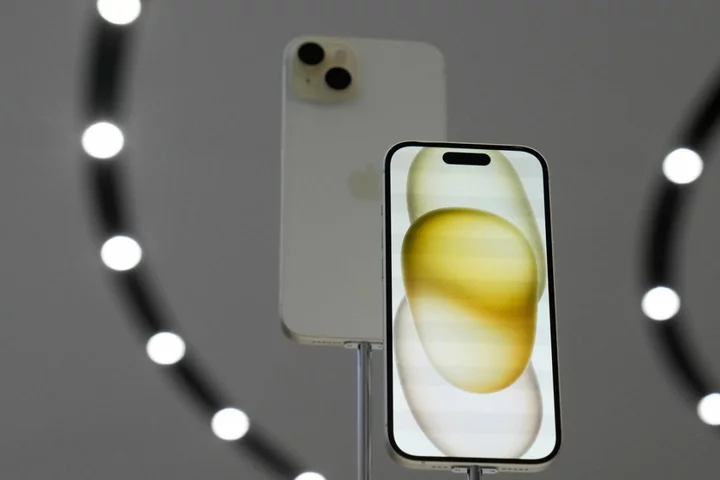
iOS 17.1.1: Apple releases new iPhone update to let phones charge in cars without breaking
Apple has released a new iPhone update that ensures they won’t break when being charged in the car. The iOS 17.1.1 update includes a range of bug fixes for some unusual and high-profile issues with Apple’s new iPhones. It is available to download now as usual. When the iPhone 15 was released, some users of specific cars – particularly those made by BMW and Toyota – reported that charging their phones in the car would break them. In some cases, when people used the built-in wireless charging then Apple Pay would stop working, for instance. That is now fixed in the new update, according to Apple’s release notes. It fixes an issue where “In rare circumstances, Apple Pay and other NFC features may become unavailable on iPhone 15 models after wireless charging in certain cars”, it says. The new operating system update also fixes an issue where “Weather Lock Screen widget may not correctly display snow”, the release notes say. That refers to a problem where users would instead see a file icon, which had been widely reported. Apple has also released an update for the Watch, numbered 10.1.1. That fixes another prominent issue that led to unexpected battery drain on the Watch, with some reporting that their devices lost all their charge in just a few hours. The Mac and HomePod also have their own bug updates. They can all be installed as usual: through the Settings app on the iPhone or Mac, or through the devoted apps for the Watch and HomePod, though all devices should eventually prompt the user to update automatically. The update came after a Bloomberg report that indicated Apple had taken some engineers off work on upcoming major updates to ensure that the current operating system versions were as free of bugs as possible. Recent weeks have seen a range of unexpected bugs in Apple software, including widespread reports that the iPhone 15 would get uncomfortably hot, which was later fixed with another software update. Read More The Apple Watch has a major issue but Apple is working on a fix Something is happening with Apple’s Mac and iPads Apple just revealed a new MacBook Pro – with a new colour
2023-11-09 02:47
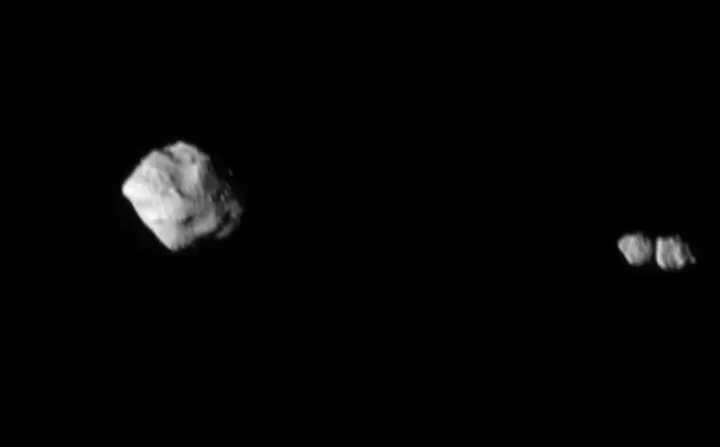
Nasa gets ‘puzzling’ data back from Lucy spacecraft exploring distant object
Nasa has received “puzzling” data from a spacecraft that was studying a distant asteroid. The space agency’s Lucy Spacecraft left Earth in 2021, with the aim of studying “Jupiter trojans”, a set of asteroids that fly around the Sun along Jupiter’s orbit and remain largely mysterious. Recently, scientists decided to send it to visit another small object on its way, largely as a test of the systems on the spacecraft that let it track asteroids for its mission. When Lucy arrived at that object – a main belt asteroid named Dinkinesh – it found a surprise, however. Images taken of the asteroid showed that it had a satellite, which flies around the asteroid like a tiny moon of its own. Now, further examination of those images show that the satellite is not one but two objects. Those objects make up a “contact binary”, or two smaller objects that are touching each other as they fly through space. The unexpected discovery explains some of the strange data that scientists had received as they approached Lucy. But it opens up more confusion about the whole system, which one called “bizarre”. “Contact binaries seem to be fairly common in the solar system,” said John Spencer, Lucy deputy project scientist, in a statement. “We haven’t seen many up-close, and we’ve never seen one orbiting another asteroid. “We’d been puzzling over odd variations in Dinkinesh’s brightness that we saw on approach, which gave us a hint that Dinkinesh might have a moon of some sort, but we never suspected anything so bizarre!” The flyby of Dinkinesh was only intended as a test of the spacecraft’s systems but has now posed new possible research for scientists. “It’s truly marvelous when nature surprises us with a new puzzle,” said Tom Statler, Lucy program scientist from NASA Headquarters in Washington. “Great science pushes us to ask questions that we never knew we needed to ask.” “It is puzzling, to say the least,” said Hal Levison, principal investigator for Lucy, also from Southwest Research Institute. “I would have never expected a system that looks like this. In particular, I don’t understand why the two components of the satellite have similar sizes. This is going to be fun for the scientific community to figure out.” The scientists were only able to confirm the nature of the system with the multiple images that were sent back by Lucy in the wake of its encounter with Dinkinesh. Nasa is working now to get the rest of the data from the spacecraft, which might include yet more surprises. Lucy itself will continue flying through space on a journey that is due to take 12 years. Lucy is actually heading back to Earth, which it will use for a gravity assist to propel it onto the next part of its journey, back through the main asteroid belt and onto the Trojan asteroids. Read More Nasa sending VR headset up to ISS to treat astronaut’s mental health All-UK space mission will ‘push boundaries of human knowledge’ All-female Nasa astronaut team departs International Space Station on spacewalk
2023-11-09 02:38
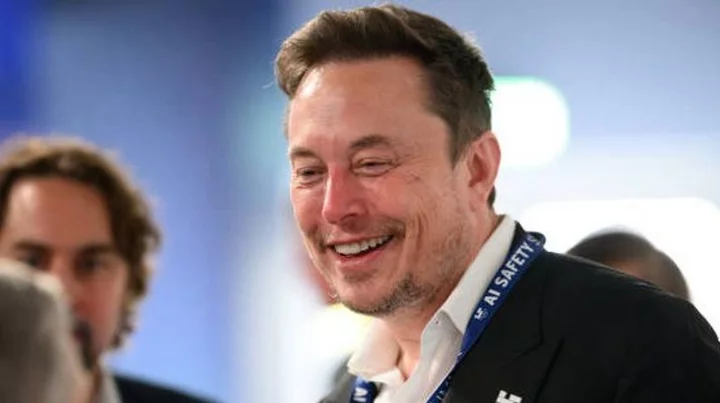
Elon Musk wants a volunteer to have their head cut open for his brain implants
Elon Musk's chip implant company Neuralink is looking for its first volunteer since the company got approved to perform tests on humans by the FDA. Prior to its approval for human clinical trials, Reuters reported that the company had killed roughly 1,500 animals during testing. The volunteer would have to be willing to have a piece of their skull removed so a robotic surgeon can insert thin wires and electrodes into their brain. The company told Bloomberg News, the ideal candidate will be a quadriplegic under the age of 40. Neuralink hopes to eventually make a device that will allow people to send messages or play games using only their thoughts. Ashlee Vance, the author of the 2015 biography 'Elon Musk: Tesla, SpaceX, and the Quest for a Fantastic Future', said in his Bloomberg report that despite "an outpouring of interest from thousands of prospective patients," the company is still seeking its first volunteer. The chip would enable computer functions to be performed using only thoughts via a "think-and-click" mechanism. If the ideal volunteer is chosen, a surgeon will remove part of the person's skull, before a robot dubbed "R1", equipped with cameras, sensors and a needle will push 64 threads into the brain whilst doing its best to avoid blood vessels. Reassuring. Each thread has roughly the diameter of 1/14th of a strand of human hair, and is lined with 16 electrodes that are programmed to gather data about the brain. The electrodes record neural activity related to movement intention, which is then decoded by Neuralink computers. Neuralink did not reveal how many participants would be enrolled in the trial or how many patients the FDA ultimately approved, after a negotiation between the company and agency which raised safety concerns, according to current and former employees. DJ Seo, co-founder and vice president for engineering of Neuralink told Bloomberg: "The short-term goal of the company is to build a generalised brain interface and restore autonomy to those with debilitating neurological conditions and unmet medical needs." "Then, really, the long-term goal is to have this available for billions of people and unlock human potential and go beyond our biological capabilities." Indy100 has reached out to Neuralink for comment. Sign up to our free Indy100 weekly newsletter Have your say in our news democracy. Click the upvote icon at the top of the page to help raise this article through the indy100 rankings. How to join the indy100's free WhatsApp channel
2023-11-09 02:00
You Might Like...

Water Bills to Rise 35% By 2030 in England To Fund Investment
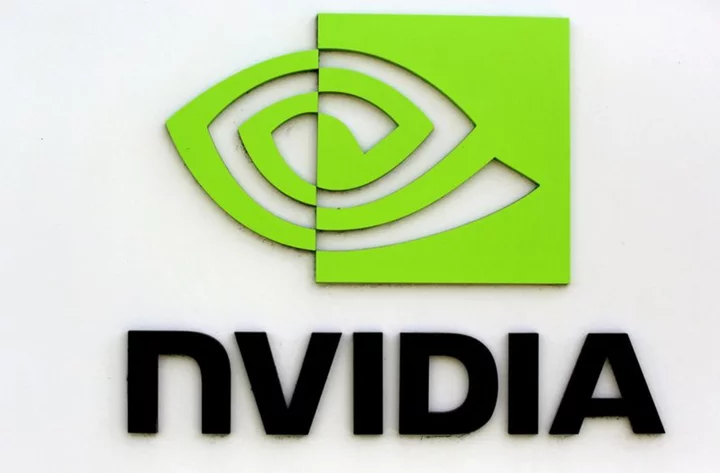
Nvidia forecasts second-quarter revenue above estimates

A Psychedelics Boom Is Minting Environmentalists
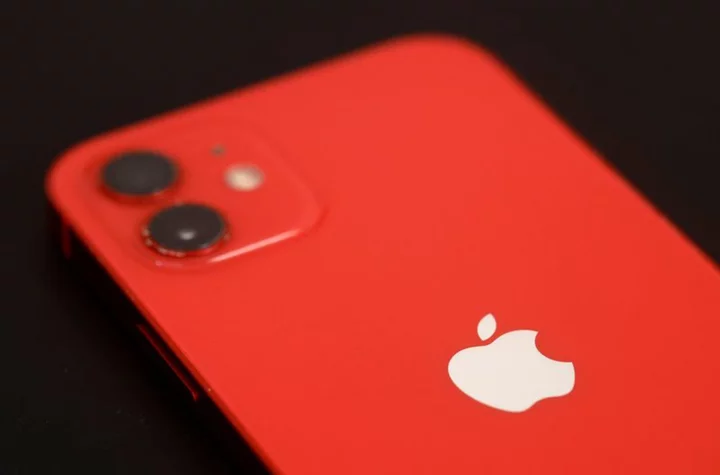
Explainer-Why has France banned sales of Apple's iPhone 12?
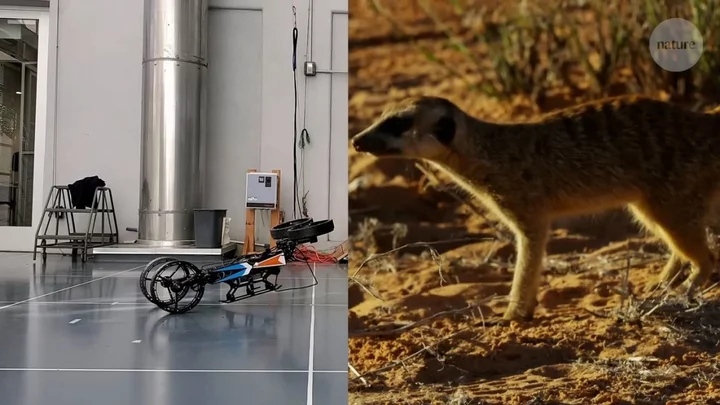
Scientists design new shapeshifting 'morphobot' and it's like a real-life Transformer

Designer Ada Hefetz Transforms Wedding Dress Design with Stratasys’ 3DFashion Technology
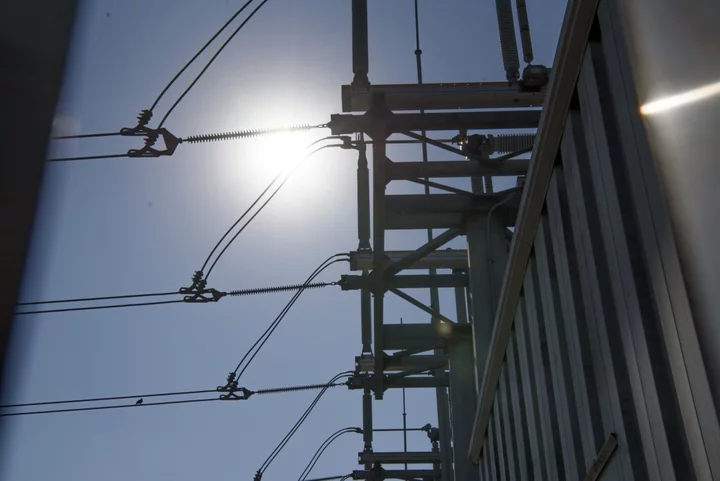
Scorching Heat Has US Power Grids Warning of Potential Blackouts

Trump wants to close the Department of Education, joining calls by GOP rivals
